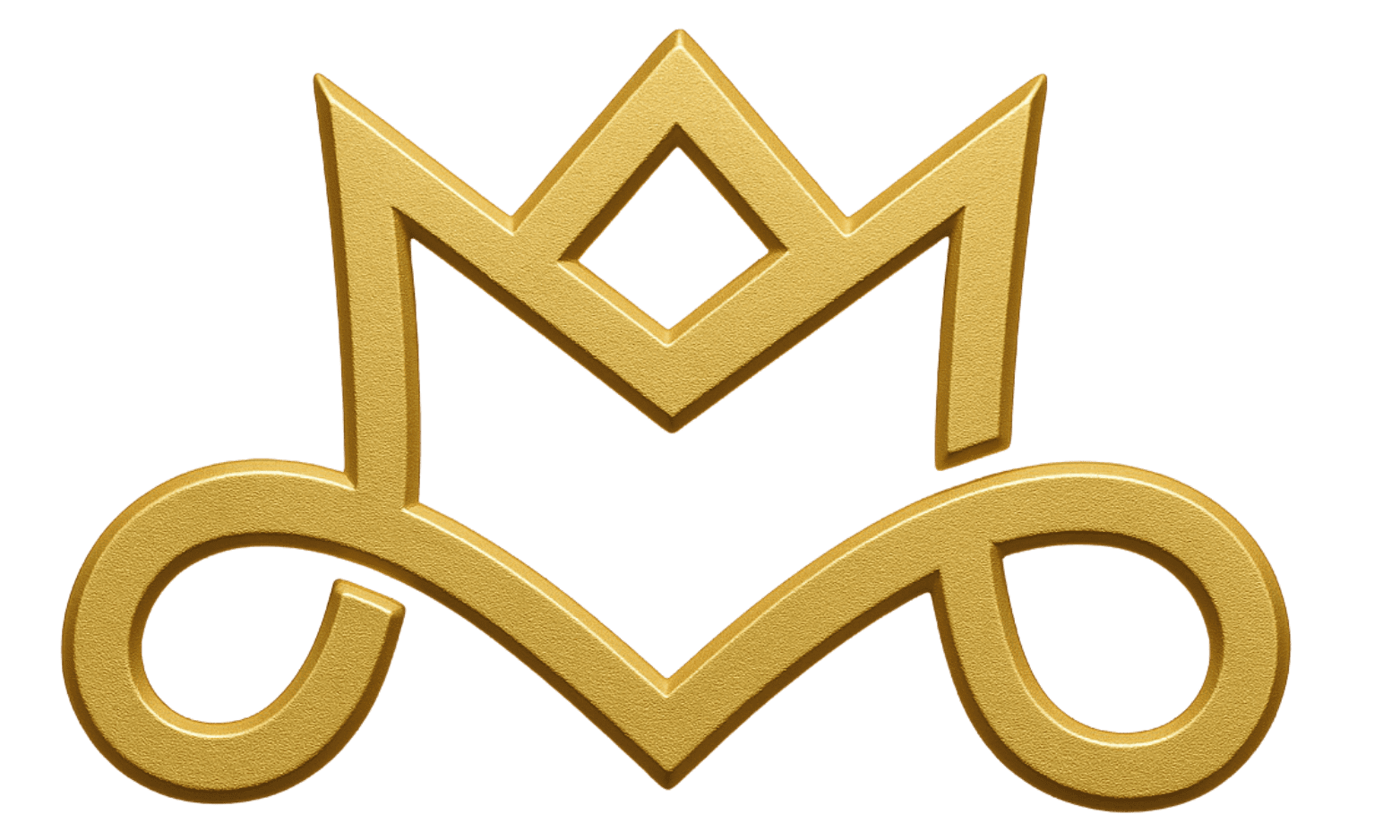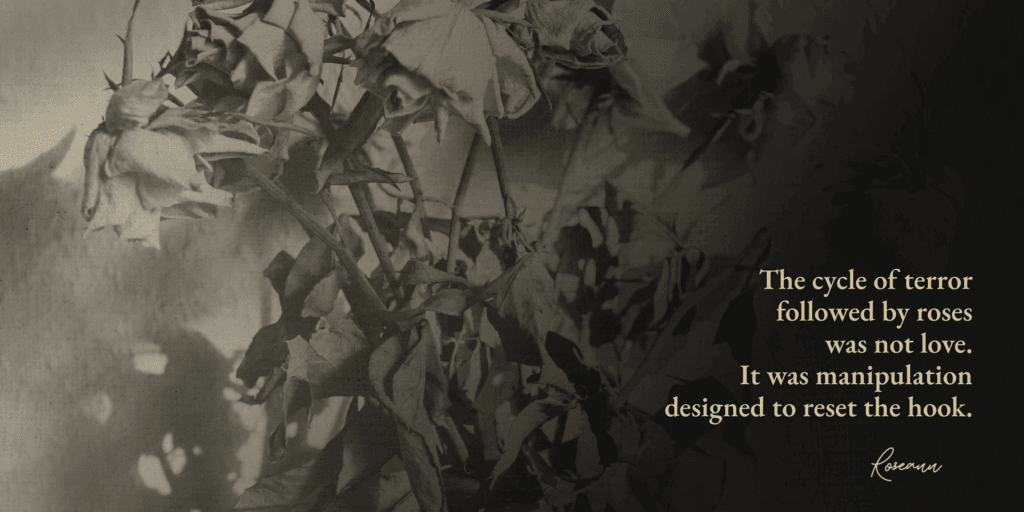The Cycle of Terror Followed by Roses Was Not Love
I’ve posted the first few paragraphs of this Missing Page on my blog, but only survivors and friends like you are receiving the full story. You don’t have to click anywhere—it’s right here for you, because you’re walking with me at the very beginning.
Hi y’all! 🌾 I’m taking The Lost Letters private now — but it’s still FREE for you to subscribe and read along. I’d love for you to join before the door closes!
For the stories I couldn’t fit into the book, subscribe free here → https://roseannwrites.substack.com
—Roseann
Stories Too Raw for the Book— Shared Only Here
The Lost Pages
Pages that didn’t make the book because they burned too hot, cut too close, spoke too plain. If you want more of what you’ve just read, the only way is here for your monthly encouragement!
If for any reason you need to pause or step back, you can always opt out — I want these pages to be a place of healing, not pressure. —Roseann
How terror, apology, and silence kept me captive — until I chose freedom.
When I left him in January of 2000, I thought distance might soften his grip. For years in the house we shared, his tactics came once a week, sometimes less—always enough to remind me who held the power. But when I walked out, everything escalated. For the next two years, until the divorce was final in 2002, I lived in a small town where terror braided itself into roses, intimidation wrapped itself in apologies, and cruelty wore the mask of devotion.
Nights were the hardest. I would lie in bed with one ear open, listening for footsteps in the dark, every creak of the floorboards making my chest seize. He had a way of being everywhere and nowhere at once—hiding in bushes, crouched in shadows, letting me know I was never out of reach. My car vanished from the driveway. The dog I loved disappeared from a fenced yard without a gate left open or a hole dug under. I could never prove it, but I knew. Each absence was designed to unmoor me, to make me question what I knew with my own eyes.
One night the front picture window of my country apartment was riddled with holes. Not shattered, but pocked and scarred, as if someone had stood outside and fired until they’d made their point. The next day he called, his voice calm, pretending concern: “You must have had an intruder. I saw the holes when I was there last night.” He spoke as if he were a bystander, not the cause, leaving me terrified and doubting what I knew to be true. I never found casings, never knew for certain what kind of gun had been used—some said a .22 short, others thought maybe a BB—but the caliber didn’t matter. What mattered was the message: I wasn’t safe, not even in the place I had paid for with my own hands.
After that call, after standing in front of that riddled glass, I never went back. I packed what I could and waited until another place opened closer to the office, where the traffic and lights at least gave the illusion of safety. He thought he had me trapped, but I found my way out, one choice at a time.
His cruelty was calculated. He was supposed to be 250 miles away, but distance didn’t stop him. He would sit in alleys near my house, unseen, and later repeat back the smallest details—me standing by the pool with a glass of wine, kittens in my hands at dusk. Memories that should have been private became evidence that I was never unobserved. He wanted me off balance, doubting myself, believing I was losing my mind.
And then the roses would come.
A knock at the door. A bouquet left where it would be noticed. A delivery timed so it wasn’t just for me, but for the people around me—his best friend, the therapist, anyone he wanted to convince. It was theater, staged devotion, meant to paint me as ungrateful if I didn’t play along. Tucked between the blooms, always the same neat script: Please talk to me. Let’s work this out. As if flowers could erase the sound of shattering glass. As if petals could cover the panic that lived in my body.
But here’s what he didn’t count on: every single day, even in the midst of terror, I was getting stronger. God anchored me and held onto me, as He still does. I prayed my way out—sometimes blindly, sometimes desperately, sometimes with more faith than wisdom—but always with the certainty that I was not alone. He thought he was unraveling me, but every act of cruelty only drove me deeper into God’s arms. My faith became the lifeline that tethered me to survival.
The roses weren’t apologies. They were camouflage. A fish hook disguised as kindness. A treble hook lodged deep, meant to drag me back through blood and thorns.
I didn’t have language for it then. I thought maybe this was what a broken marriage looked like, or maybe I wasn’t trying hard enough, or maybe God expected me to carry this cross. But my body knew. My trembling hands knew. My spirit knew. The cycle of terror followed by roses was not love. It was manipulation designed to keep me hooked.
Even in silence, I was never at rest. The quiet was not safety—it was only the setup for the next storm. That’s the cruelest trick: on the surface, it looked like reconciliation. Who doesn’t want to believe in second chances, in soft words after a storm? When a bouquet arrived after a night of threats, it could almost feel like proof: See, he does care. He’s sorry. He loves me. But it wasn’t love.
Love does not terrify you and then buy your forgiveness.
Love does not demand silence in exchange for safety.
Love does not reset fear—it casts it out.
Looking back, I see the roses differently. They weren’t proof of love; they were proof of calculation. He knew how to terrify me, and he knew how to reel me back in. That wasn’t my weakness—it was his weapon. And the truth is, I never went back. The minute I walked out, I was done.
This is why I wrote Bones Beneath the Prairie. Because my story is not only one of terror, but of God’s steady hand holding me through it. It’s about survival, yes, but also redemption, faith, and the stubborn belief that love—real love—waits for us beyond the fear. If you’ve walked through shadows, or love someone who has, you’ll find yourself in its pages. And you’ll see, as I did, that even the deepest wounds can be turned into strength.
Roseann

